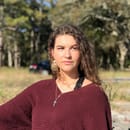On November 7, 2022, Horry County Schools revised the Library/Media Center Materials Selection and Reconsideration Policy. This policy implemented new guidelines that focused on obscenity and how schools should analyze the value of particular works for their library and media content that contains any “sexual” material. The policy goes on to discuss the Advisory Committee that each school, within the entire district, shall have; these committees must be made up of at least “(4) parents, excluding HCS employees, serving on the Parent Cabinet, Advisory Board, School Improvement Council, and/or PTO Board” (S.C Code § 59-31-10 – Library committee). While focusing on a more communal level, the new policy actively excludes HCS-trained professionals from having power in selecting library/media content and materials. The librarians, who are actively working to include material for all of their students within the school’s library, have no say in this process. The revision has also put into effect a new section within HCS libraries, called the “restricted access” section. The students are not allowed to touch or pick up the books within this section, and if they want to read these novels they would need to have a parent/guardian sign a permission form to allow them to check out the title.
After the revision of the policy, HCS held a school board meeting on November 14, 2022, where the community was able to voice their opinions on the new library and media censorship. Many librarians and parents showed up to support the removal of censorship and for the promotion of equal resources within the HCS education system. One librarian, Meredith Ritchie, actively discussed the importance of diverse material, especially LGBTQ+-affirming material, which is the primary genre being stripped from the shelves. She highlighted the recent controversy over the graphic novel, “Gender Queer: A Memoir” by Maia Kobabe, where Governor Henry McMaster called for the removal of this novel from public school libraries in South Carolina. While many citizens spoke against the censorship of reading material in schools, many parents spoke about their appreciation of being able to limit what their children read, focusing on the idea of censoring sexual and political content in the classroom.
Following the continuous controversy over banned books, Coastal Carolina University’s (CCU) English Department has worked to spread knowledge of this issue and its detrimental impact on our local community. On September 21, 2022, the English department hosted a banned book event called “Stand with the Banned”. This event involved CCU students reading their favorite passages from books that are continuously challenged and banned in the U.S. After this initial event, the department has worked to continue raising awareness by initiating a banned book club where students had the opportunity to read “Gender Queer” and discuss the local revisions in HCS following the recent ban of “Gender Queer” from Conway High School.
As a CCU student and an older sister to young siblings within HCS, I thoroughly enjoyed these events here at Coastal that discussed the local changes happening at the public schools and libraries within my community. During the second event of the banned book club, Meredith Ritchie, a librarian who has faced these revisions head-on and was one of the speakers all the way through to restrictions, was invited by CCU to participate in a panel for the banned book event. One of Ritchie’s main focuses during the school board meeting and the banned book club event was working to educate the people within our community on the importance of books in all genres. She continuously expressed how books act as windows, sliding glass doors, and stepping stones for students to empathize with the world and people around them.
One of my questions, following Ritchie’s motivation and strength to work and promote equal reading access within the district, was focused on how CCU students could get more involved with their community, as well as finding ways to create activism and change to educate and promote the importance of books and content-worthy materials in public schools. While the panel didn’t have a direct answer for me, I believe that one way to start creating change within HCS and eventually nationwide is by informing the people around me. With the use of this article, I hope to inform my readers and any readers about the policies and censorship happening right outside our doors. The banned book club event is how I learned about HCS policies. I hope to share that information with you so that we students, future leaders, educators, and professionals can understand our impact by promoting change.
Ritchie explained the one thing that we citizens, students, and family members of HCS can do in reaction to the revised policy is by participating in local events like the school board meetings. I have linked the schedule for HCS board meetings and the form to have the opportunity to speak your opinion about the issues at hand and to be informative to a group of citizens, parents, and board members about the importance of books and genres that elaborate on the issues that these students are facing every single day. With more awareness about the situation, we could potentially build on the concept of banned book clubs by creating programs within our local schools to implement close readings of texts that delve into topics that many students aren’t able to see within their public libraries, like gender-affirming texts. As for now, I will continue to remain diligent in spreading this information to the people around me and being involved in the meetings and programs that can help remove these restrictions that HCS has put into effect. CCU’s English department will be hosting another Banned Book Club event on March 15th at 4-5:30 pm where the panel members will discuss and navigate any plans and ideas that the CCU students can do to work within the community to actively work against this censorship.
Board of Education at HCS / Board Meeting Schedule (horrycountyschools.net)
Board of Education at HCS / Request to Speak (horrycountyschools.net)


